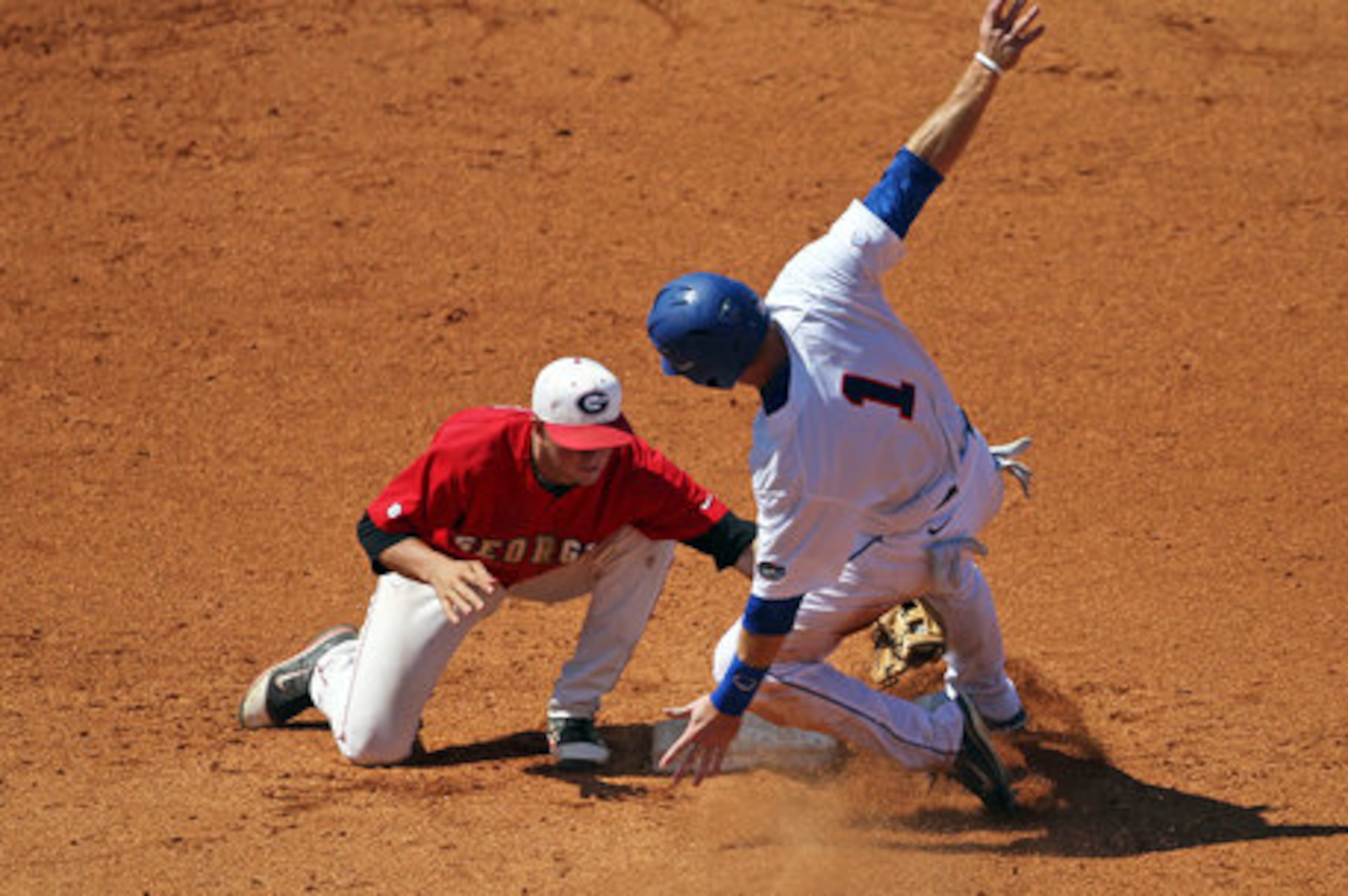Chipper credits Baylor for vaulting him to MVP level

Don Baylor, who died Monday after a long battle with cancer, spent just one season as Braves hitting coach in 1999 but had a profound impact on a switch-hitting third baseman who was on his way to becoming one of the greatest players in franchise history.
Chipper Jones credits Baylor for helping him change his approach from the right side of the plate at spring training that year, a development that helped Jones win the 1999 National League MVP award and catapaulted him to next-level stardom and almost certainly to first-ballot election into the National Baseball Hall of Fame when Jones becomes eligible this coming winter.
“It was no coincidence that I won the MVP the year he was here,” Jones said. “He got the most out of guys. For me we just hit it off and it clicked right away. He was really good at gauging players, reading people, knowing when they needed a foot in the rear end, a day off, or a pat on the back. He was a big man, he was stern and he demanded a lot out of you -- and he got a lot out of you.”
Jones hit .319 with career-bests of 45 home runs and a 1.074 OPS in 1999, including 15 home runs in 142 at-bats against left-handers in 1999. This after hitting only two of his 34 homers in 1998 against lefties, one of 21 homers in 1997 against lefties, and six of his previous career-high 30 homers in 1996 against lefties.
“It was just the mindset,” Jones said Monday, shortly after hearing that Baylor had died. “Lot of teams back in the day turned me around to my weaker side -- which was my right side -- late in the games. He just said, ‘You hit third and play third for one of the best teams in baseball, people need to fear you when you walk to the plate. They fear you when you walk to the plate left-handed but they don’t fear you when you walk to the plate right-handed.’ And from that day the mindset changed.”
Jones took Baylor’s advice and began swinging to “do damage” from the right side just as he did from the left side, rather than trying to merely hit for a high average right-handed.
“He wanted me more aggressive from the right side,” said Jones, who said it wasn’t a matter of “swinging from the heels” as some have suggested he began to do from the right side. “It was more of a controlled violence, It was certainly a lot more malice aforethought when you’re going after it….
“It took me from being a low-30, high-20 homer guy, to 40-some homers,” he said. “Instead of being just a 30-homer guy from left side and five or six from the right, you go to 15 from that (right) side. It’s one thing to hit 30, it’s another to hit 40. It puts you in a more elite category, and that’s what kind of vaulted me toward MVP status.”
And for that he credits Baylor, himself a former MVP in a 36-homer, 139-RBI, .901 OPS season with the Angels in 1979.
“No doubt,” Jones said. “And it wasn’t just me. A lot of guys will probably tell you the same thing, Andruw (Jones) will probably tell you as well that he was big for him. He he was big for a lot of us. Wish like crazy we could have held onto him for a while. But his greatness was needed elsewhere.”
Baylor’s season with the Braves as hitting coach came between managerial jobs with the Rockies and Cubs.
Jones knew that Baylor had been dealing with cancer for some time, but news of his death still stunned the retired Braves great.
“I always saw ‘Groove’ as big and strong and could fight anything,’” said Jones, referring to Baylor by the nickname that those close to him used.


